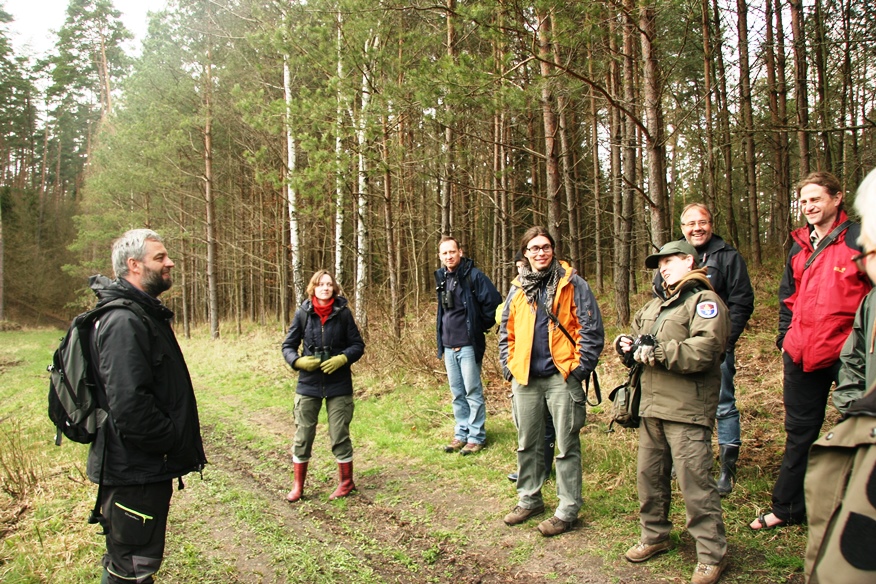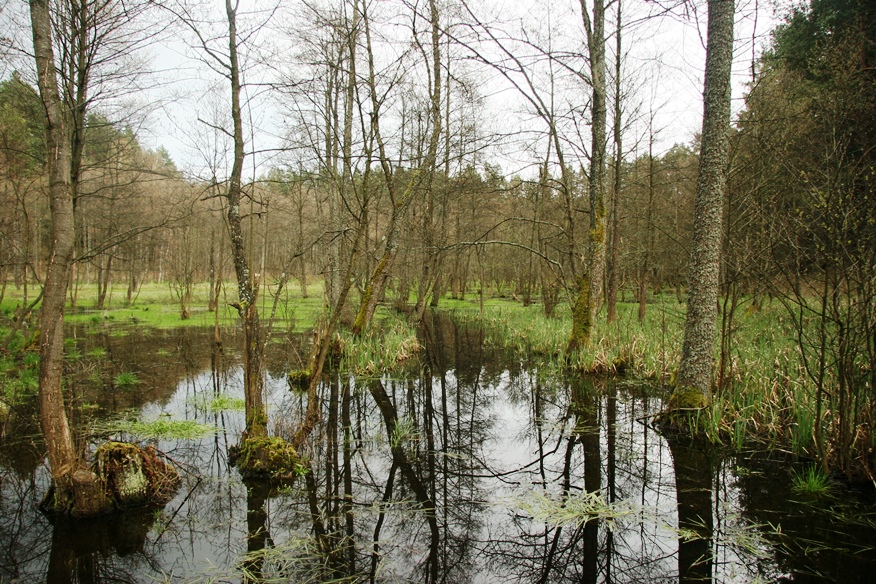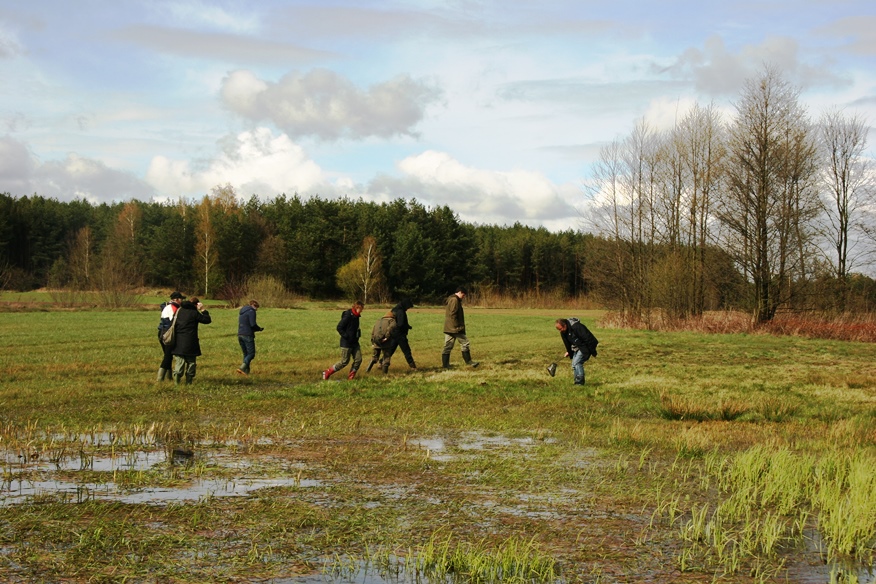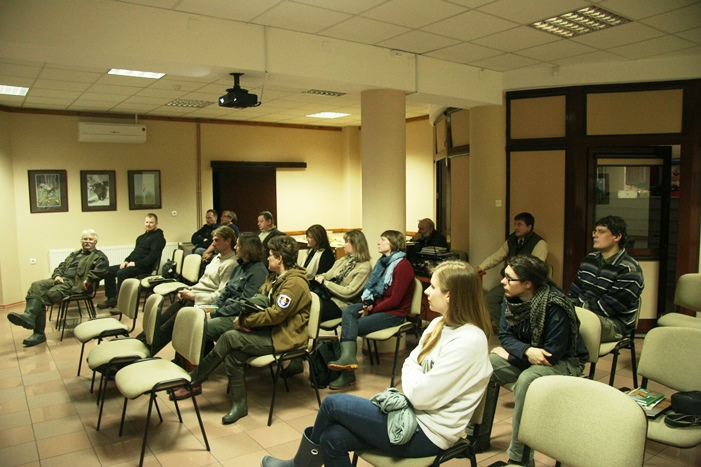Long term maintenance of restored habitats of reptiles and amphibians and rearing of turtle juveniles in Poland
18 April 2014

 When turtles and tree frogs woke up from hibernation, the project participants travelled to a study tour. Representatives from Dzūkija National Park, Meteliai and Veisiejai Regional Parks, Lithuanian Zoological Garden, Ministry of Environment, Lithuanian Society of Herpetologists, Amphi Consult and Lithuanian Fund for Nature got to know in detail about long term maintaining of restored habitats for reptiles and amphibians and rearing of turtle juveniles in Poland. Participants of the study tour visited Masuria region, where in Natura 2000 area of Napiwodzko-Ramucka Forest turtle expert Grzegorz Górecki showed long term experience of the habitat restoration and maintaining for the pond turtles.
When turtles and tree frogs woke up from hibernation, the project participants travelled to a study tour. Representatives from Dzūkija National Park, Meteliai and Veisiejai Regional Parks, Lithuanian Zoological Garden, Ministry of Environment, Lithuanian Society of Herpetologists, Amphi Consult and Lithuanian Fund for Nature got to know in detail about long term maintaining of restored habitats for reptiles and amphibians and rearing of turtle juveniles in Poland. Participants of the study tour visited Masuria region, where in Natura 2000 area of Napiwodzko-Ramucka Forest turtle expert Grzegorz Górecki showed long term experience of the habitat restoration and maintaining for the pond turtles.

 Afterwards the participants travelled to a valley of the river Narew, where 50 ponds for amphibians were created in year 2002. Amphibian expert Lars Briggs told about characteristics of such habitats. The participants had an opportunity to see the influence of grazing to the suitability of habitats for the tree frogs and the red-bellied toads.
Afterwards the participants travelled to a valley of the river Narew, where 50 ponds for amphibians were created in year 2002. Amphibian expert Lars Briggs told about characteristics of such habitats. The participants had an opportunity to see the influence of grazing to the suitability of habitats for the tree frogs and the red-bellied toads.


 The last day of the study tour the participants visited Poleski National Park, where they got to know about the conservation efforts for the pond turtles. Park director Jarosław Szymański introduced the situation in the park, chief of the breeding station Radosław Olszewski told about threats and conservation measures of the pond turtles in the park, head of the Chełm Regional Nature Protection Directorate Janusz Holuk presented practical measures of conservation of pond turtle in Chełm Landscape Parks, Project manager Dalia Bastytė shared with Polish colleagues Lithuanian experience about ECONAT Project. After excursion to the turtle rearing facilities and the turtle habitats in Poleski National Park, the participants travelled back to Lithuania. Learned experience for the people who work with reptiles and amphibians will be useful releasing reared turtle juveniles for the first time in Lithuania and maintaining the habitats restored during the Project.
The last day of the study tour the participants visited Poleski National Park, where they got to know about the conservation efforts for the pond turtles. Park director Jarosław Szymański introduced the situation in the park, chief of the breeding station Radosław Olszewski told about threats and conservation measures of the pond turtles in the park, head of the Chełm Regional Nature Protection Directorate Janusz Holuk presented practical measures of conservation of pond turtle in Chełm Landscape Parks, Project manager Dalia Bastytė shared with Polish colleagues Lithuanian experience about ECONAT Project. After excursion to the turtle rearing facilities and the turtle habitats in Poleski National Park, the participants travelled back to Lithuania. Learned experience for the people who work with reptiles and amphibians will be useful releasing reared turtle juveniles for the first time in Lithuania and maintaining the habitats restored during the Project.
